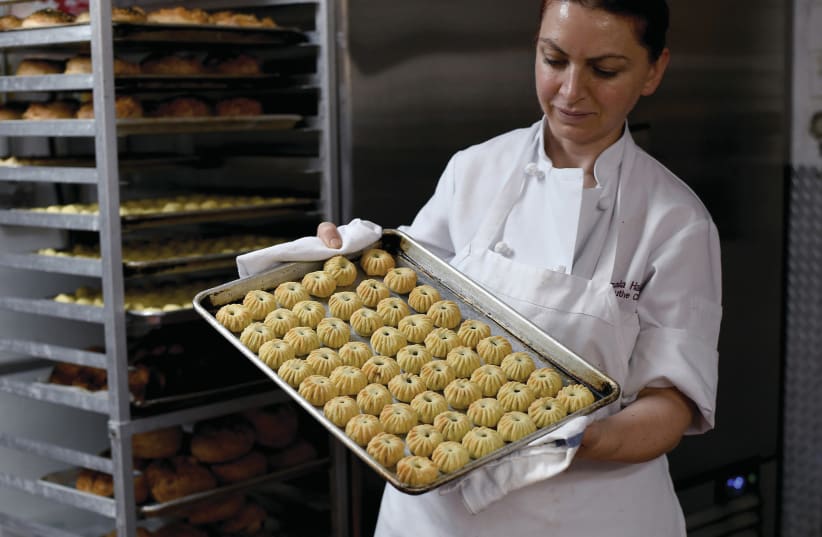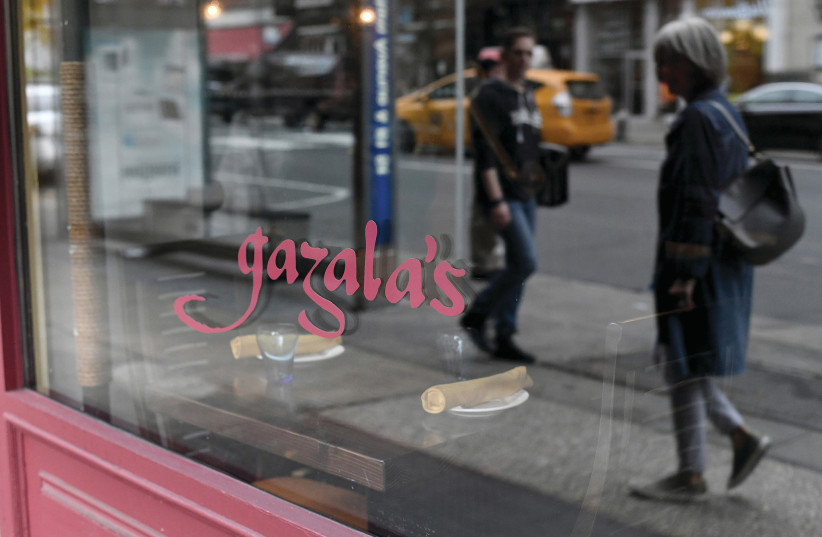It takes a lot of chutzpah to open a restaurant serving ethnic cuisine in New York City – arguably the city with the most diverse culinary scene in the world.
Growing up Israeli, though, Gazala Halabi knows a thing or two about chutzpah and what makes good food. The chef, a Druze woman hailing from Daliat el-Carmel, a small village of 18,000 in northern Israel, didn’t always know she wanted to live in New York and certainly didn’t know she wanted to be a chef. But when the opportunity presented itself, she went all in.
Opportunity presents itself
“I enrolled in the University of Haifa, back in 1997. I had terrible English, so I had to do mechina (a preparatory course) first. I studied psychology,” she said. “The university was a half-hour drive from my village and everybody there who wanted to go to school knew the University of Haifa was the best option.”
As such, the journey to becoming her own boss in the culinary world was an unlikely uphill battle. After her studies, a friend encouraged her to try her luck in New York.
“I think I was able to do it because I have an Israeli mentality. I didn’t understand how unique that is until I left. Being Israeli, I felt capable of not doing things the normal way but doing it the Israeli way,” she said. “Meaning, at first, I didn’t think I could make it in the big city. But when you pull yourself together and try it can really happen. Israelis know what they want and they go after it. And they don’t stop until they succeed.”
The young mother moved to New York in 2001 and started off as a small home-based catering business as a somewhat hasty attempt to provide for her children. Her creations – all lovingly made from scratch and infused with herbs, spices and oils imported from Israel – sparked a buzz in the community and it wasn’t long before many craved her authentic cuisine.
When she opened Gazala’s Place in 2007, she introduced New Yorkers to Druze cooking. She started out small and opened an unassuming hole in the wall in the Upper West Side. Now, she boasts two successful locations in the neighborhood which serves as a love letter to Druze and Israeli culture. Roasted layers of eggplant slices stuffed with sun-dried tomato and mozzarella cheese and topped with tahina, and tomato boureka, a baked flaky phyllo dough crust pie filled with sun-dried tomatoes and homemade cheese, are some of the mouth-watering items on the menu.
HER RESTAURANT is now a household name in the Upper West Side, with even The New York Times raving about her baba ganoush. She admits that she didn’t even know what The New York Times was until a critic stumbled into her restaurant. The rest, as they say, is history.
She credits much of her success not only to the Israeli spirit of entrepreneurship but to her professors and peers at the University of Haifa who taught her that just because she hails from a small village doesn’t dictate that the rest of her life needs to be small, as well.
“I came from a small village. I was limited in every respect imaginable. I was brought up from a very young age that I wouldn’t work because that is in my culture. Even if I got my education, I’d end up working for my husband once I got married. It took me a long time to convince my dad that forging my own path was something I wanted to do,” she revealed.
“When I went to the University of Haifa, I was very engaged in my studies, but I didn’t think about the next step. I struggled trying to be a good student. But I saw everybody else around me not only studying but working, as well. Everything was so easy for them and they were so smart. They inspired me. They showed me that if you want to do it, then it’s possible,” she said. “Had I not been inspired by my peers, I wouldn’t be in New York City and the only people I’d be cooking for would have been my children.”
Embraced by the Jewish community
She also credits the local Jewish community in New York for embracing her restaurant with open arms.
“When I opened my restaurant in New York, I got so much support from the local Jewish community. They are my people,” she said.
It’s support that she’s grateful for, especially since in New York she feels like one of a kind, as most other Druze either hail from Lebanon or Syria, instead of Israel.
While 18,000 people is not very many in the grand scheme of things, it stands to reason that there are a number of young people in her hometown who also have their own dreams and ambitions that extend far beyond their village walls.
To them, Halabi advises, “Listen to your teachers. They are talented. They know how to teach. The more we as Druze learn, the stronger of a community we will be. If we could bottle up their technique regarding higher education and absorb that into our community, it will help in the long run.”

